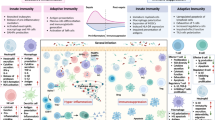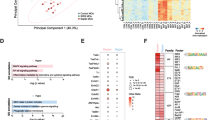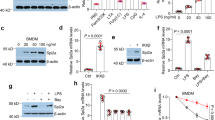Abstract
N6-methyladenosine (m6A) modification is a class of epitope modifications that has received significant attention in recent years, particularly in relation to its role in various diseases, including sepsis. Epigenetic research has increasingly focused on m6A modifications, which is influenced by the dynamic regulation of three protein types: ‟Writers” (such as METTL3/METTL14/WTAP)—responsible for m6A modification; ‟Erasers” (FTO and ALKBH5)—involved in m6A de-modification; and ‟Readers” (YTHDC1/2, YTHDF1/2/3)—responsible for m6A recognition. Sepsis, a severe and fatal infectious disease, has garnered attention regarding the crucial effect of m6A modifications on its development. In this review, we attempted to summarize the recent studies on the involvement of m6A and its regulators in sepsis, as well as the significance of m6A modifications and their regulators in the development of novel drugs and clinical treatment. The potential value of m6A modifications and modulators in the diagnosis, treatment, and prognosis of sepsis has also been discussed.
Graphical abstract







Similar content being viewed by others
Availability of data and materials
Not applicable.
Abbreviations
- AKI:
-
Acute kidney injury
- ALI:
-
Acute lung injury
- ARDS:
-
Acute respiratory distress syndrome
- ALKBH5:
-
Alkylation repair homolog 5
- CXCR2:
-
CXC chemokine receptor 2
- eIF3:
-
Eukaryotic initiation factor 3
- FTO:
-
Fat mass and obesity-associated protein
- I/R:
-
Ischemia/reperfusion
- LDH:
-
Lactate dehydrogenase
- LPS:
-
Lipopolysaccharide
- HNRNP:
-
Nuclear inhomogeneous nuclear ribonucleoprotein
- IGF2BP:
-
Insulin-like growth factor 2 mRNA-binding protein
- MALAT1:
-
Metastasis-associated lung adenocarcinoma tran 1
- METTL3:
-
Methyltransferase-like 3
- NETs:
-
Neutrophil extracellular traps
- PH:
-
Pulmonary hypertension
- PMVECs:
-
Pulmonary microvascular endothelial cells
- SAE:
-
Sepsis-associated encephalopathy
- SOCS:
-
Suppressor of cytokine signaling
- SH2:
-
Src-homology 2
- SIRS:
-
Systemic inflammatory response syndrome
- YTH:
-
YT521-B homolog
- YTHDF2:
-
YTH structural domain family 2
- WTAP:
-
Wilms tumor 1-associated protein
References
Adhikari NK et al (2010) Critical care and the global burden of critical illness in adults. Lancet 376(9749):1339–1346
Fleischmann-Struzek C et al (2020) Incidence and mortality of hospital- and ICU-treated sepsis: results from an updated and expanded systematic review and meta-analysis. Intensive Care Med 46(8):1552–1562
Rudd KE et al (2020) Global, regional, and national sepsis incidence and mortality, 1990–2017: analysis for the Global Burden of Disease Study. Lancet 395(10219):200–211
Jawad I, Luksic I, Rafnsson SB (2012) Assessing available information on the burden of sepsis: global estimates of incidence, prevalence and mortality. J Glob Health 2(1):010404
Faix JD (2013) Biomarkers of sepsis. Crit Rev Clin Lab Sci 50(1):23–36
Wang P, Doxtader KA, Nam Y (2016) Structural basis for cooperative function of Mettl3 and Mettl14 methyltransferases. Mol Cell 63(2):306–317
Huang Q et al (2022) The RNA m(6)A writer WTAP in diseases: structure, roles, and mechanisms. Cell Death Dis 13(10):852
Deng LJ et al (2022) ALKBH5 expression could affect the function of t cells in systemic lupus erythematosus patients: a case-control study. Curr Pharm Des 28(27):2270–2278
Yang Z et al (2022) Critical roles of FTO-mediated mRNA m6A demethylation in regulating adipogenesis and lipid metabolism: implications in lipid metabolic disorders. Genes Dis 9(1):51–61
Jin S et al (2022) The m6A demethylase ALKBH5 promotes tumor progression by inhibiting RIG-I expression and interferon alpha production through the IKKepsilon/TBK1/IRF3 pathway in head and neck squamous cell carcinoma. Mol Cancer 21(1):97
Wang J et al (2020) The biological function of m6A demethylase ALKBH5 and its role in human disease. Cancer Cell Int 20:347
Xiao W et al (2016) Nuclear m(6)A Reader YTHDC1 Regulates mRNA Splicing. Mol Cell 61(4):507–519
Hsu PJ et al (2017) Ythdc2 is an N(6)-methyladenosine binding protein that regulates mammalian spermatogenesis. Cell Res 27(9):1115–1127
Yang Y et al (2018) Dynamic transcriptomic m(6)A decoration: writers, erasers, readers and functions in RNA metabolism. Cell Res 28(6):616–624
Wang X et al (2015) N(6)-methyladenosine modulates messenger RNA translation efficiency. Cell 161(6):1388–1399
Wang X et al (2014) N6-methyladenosine-dependent regulation of messenger RNA stability. Nature 505(7481):117–120
Meyer KD et al (2015) 5’ UTR m(6)A promotes cap-independent translation. Cell 163(4):999–1010
Huang H et al (2018) Recognition of RNA N(6)-methyladenosine by IGF2BP proteins enhances mRNA stability and translation. Nat Cell Biol 20(3):285–295
Shen ZJ et al (2021) Genome-wide identification of altered RNA m(6)A profiles in vascular tissue of septic rats. Aging (Albany NY) 13(17):21610–21627
Han YC et al (2021) Lipopolysaccharide alters the m6A epitranscriptomic tagging of RNAs in cardiac tissue. Front Mol Biosci 8:670160
Dubey PK et al (2022) Increased m6A-RNA methylation and FTO suppression is associated with myocardial inflammation and dysfunction during endotoxemia in mice. Mol Cell Biochem 477(1):129–141
Chen Y et al (2022) METTL3-mediated N6-methyladenosine modification of Trim59 mRNA protects against sepsis-induced acute respiratory distress syndrome. Front Immunol 13:897487
Shen H et al (2022) N(6)-methyladenosine (m(6)A) methyltransferase METTL3 regulates sepsis-induced myocardial injury through IGF2BP1/HDAC4 dependent manner. Cell Death Discov 8(1):322
Xie W et al (2023) Silencing m6a reader ythdc1 reduces inflammatory response in sepsis-induced cardiomyopathy by inhibiting Serpina3n expression. Shock 59(5):791–802
Luo J et al (2021) Targeted inhibition of FTO demethylase protects mice against LPS-induced septic shock by suppressing NLRP3 inflammasome. Front Immunol 12:663295
Wang X et al (2023) N(6)-methyladenosine of Spi2a attenuates inflammation and sepsis-associated myocardial dysfunction in mice. Nat Commun 14(1):1185
Du J et al (2020) N(6)-adenosine methylation of Socs1 mRNA is required to sustain the negative feedback control of macrophage activation. Dev Cell 55(6):737–753
Liu Y et al (2019) The N(6)-methyladenosine (m(6)A)-forming enzyme METTL3 facilitates M1 macrophage polarization through the methylation of STAT1 mRNA. Am J Physiol Cell Physiol 317(4):C762-c775
Xing Y et al (2021) The protective role of YTHDF1-knock down macrophages on the immune paralysis of severe sepsis rats with ECMO. Microvasc Res 137:104178
Hao WY et al (2022) RNA m6A reader YTHDF1 facilitates inflammation via enhancing NLRP3 translation. Biochem Biophys Res Commun 616:76–81
Zhang H et al (2022) Neutrophil extracellular traps mediate m(6)A modification and regulates sepsis-associated acute lung injury by activating ferroptosis in alveolar epithelial cells. Int J Biol Sci 18(8):3337–3357
Liu Y et al (2022) m(6)A demethylase ALKBH5 is required for antibacterial innate defense by intrinsic motivation of neutrophil migration. Signal Transduct Target Ther 7(1):194
Luo S et al (2023) METTL3-mediated m6A mRNA methylation regulates neutrophil activation through targeting TLR4 signaling. Cell Rep 42(3):112259
Shen H et al (2023) N6-methyladenosine writer METTL3 accelerates the sepsis-induced myocardial injury by regulating m6A-dependent ferroptosis. Apoptosis 28(3–4):514–524
Chen Z et al (2021) Review: the emerging role of neutrophil extracellular traps in sepsis and sepsis-associated thrombosis. Front Cell Infect Microbiol 11:653228
Wang Q et al (2020) Emerging role of RNA methyltransferase METTL3 in gastrointestinal cancer. J Hematol Oncol 13(1):57
Wang H et al (2022) Association among the gut microbiome, the serum metabolomic profile and RNA m(6)A methylation in sepsis-associated encephalopathy. Front Genet 13:859727
Zhu XJ et al (2021) Metal-Protein nanoparticles facilitate anti-VSV and H1N1 Viruses through the coordinative actions on innate immune responses and METTL14. Macromol Biosci 21(4):e2000382
Fan Y et al (2022) Role of WTAP in cancer: from mechanisms to the therapeutic potential. Biomolecules 12(9):1224
Wang J et al (2021) WTAP promotes myocardial ischemia/reperfusion injury by increasing endoplasmic reticulum stress via regulating m(6)A modification of ATF4 mRNA. Aging (Albany NY) 13(8):11135–11149
Lan J et al (2022) WTAP-mediated N(6)-methyladenosine modification of NLRP3 mRNA in kidney injury of diabetic nephropathy. Cell Mol Biol Lett 27(1):51
Gu X et al (2020) N6-methyladenosine demethylase FTO promotes M1 and M2 macrophage activation. Cell Signal 69:109553
Yoshimura A, Naka T, Kubo M (2007) SOCS proteins, cytokine signalling and immune regulation. Nat Rev Immunol 7(6):454–465
Shen W et al (2021) FTO overexpression inhibits apoptosis of hypoxia/reoxygenation-treated myocardial cells by regulating m6A modification of Mhrt. Mol Cell Biochem 476(5):2171–2179
Liu Y et al (2019) N (6)-methyladenosine RNA modification-mediated cellular metabolism rewiring inhibits viral replication. Science 365(6458):1171–1176
Jin J et al (2022) m(6)A demethylase ALKBH5 restrains PEDV infection by regulating GAS6 expression in porcine alveolar macrophages. Int J Mol Sci 23(11):6191
Zhou J et al (2021) m6A demethylase ALKBH5 controls CD4+ T cell pathogenicity and promotes autoimmunity. Sci Adv 7(25):eabg0470
Feng Z et al (2018) METTL3 regulates alternative splicing of MyD88 upon the lipopolysaccharide-induced inflammatory response in human dental pulp cells. J Cell Mol Med 22(5):2558–2568
Li HB et al (2017) m(6)A mRNA methylation controls T cell homeostasis by targeting the IL-7/STAT5/SOCS pathways. Nature 548(7667):338–342
Zhang S et al (2022) YTHDF1 alleviates sepsis by upregulating WWP1 to induce NLRP3 ubiquitination and inhibit caspase-1-dependent pyroptosis. Cell Death Discov 8(1):244
Wu R et al (2018) Epigallocatechin gallate targets FTO and inhibits adipogenesis in an mRNA m(6)A-YTHDF2-dependent manner. Int J Obes (Lond) 42(7):1378–1388
Paris J et al (2019) Targeting the RNA m(6)A reader YTHDF2 selectively compromises cancer stem cells in acute myeloid leukemia. Cell Stem Cell 25(1):137–148
Xie H et al (2020) METTL3/YTHDF2 m(6) A axis promotes tumorigenesis by degrading SETD7 and KLF4 mRNAs in bladder cancer. J Cell Mol Med 24(7):4092–4104
Fei Q et al (2020) YTHDF2 promotes mitotic entry and is regulated by cell cycle mediators. PLoS Biol 18(4):e3000664
Dai X et al (2020) YTHDF2 Binds to 5-Methylcytosine in RNA and Modulates the Maturation of Ribosomal RNA. Anal Chem 92(1):1346–1354
Yu R et al (2019) m6A reader YTHDF2 regulates LPS-induced inflammatory response. Int J Mol Sci 20(6):1323
Wu R et al (2019) m(6)A methylation controls pluripotency of porcine induced pluripotent stem cells by targeting SOCS3/JAK2/STAT3 pathway in a YTHDF1/YTHDF2-orchestrated manner. Cell Death Dis 10(3):171
Hu L et al (2023) Ythdf2 promotes pulmonary hypertension by suppressing Hmox1-dependent anti-inflammatory and antioxidant function in alveolar macrophages. Redox Biol 61:102638
Hemmi H et al (2000) A Toll-like receptor recognizes bacterial DNA. Nature 408(6813):740–745
Liu Y et al (2022) Emodin attenuates LPS-induced acute lung injury by inhibiting NLRP3 Inflammasome-dependent pyroptosis signaling pathway in vitro and in vivo. Inflammation 45(2):753–767
Chen C et al (2022) Emodin accelerates diabetic wound healing by promoting anti-inflammatory macrophage polarization. Eur J Pharmacol 936:175329
Ding Z et al (2022) Emodin ameliorates antioxidant capacity and exerts neuroprotective effect via PKM2-mediated Nrf2 transactivation. Food Chem Toxicol 160:112790
Rolta R et al (2020) Bioassay guided fractionation of rhizome extract of Rheum emodi wall as bio-availability enhancer of antibiotics against bacterial and fungal pathogens. J Ethnopharmacol 257:112867
Zhong T et al (2017) Rheum emodin inhibits enterovirus 71 viral replication and affects the host cell cycle environment. Acta Pharmacol Sin 38(3):392–401
Xu Z et al (2022) Deoxycholic acid-chitosan coated liposomes combined with in situ colonic gel enhances renal fibrosis therapy of emodin. Phytomedicine 101:154110
McDonald SJ et al (2022) Therapeutic potential of emodin for gastrointestinal cancers. Integr Cancer Ther 21:15347354211067468
Gao LL et al (2022) Emodin promotes autophagy and prevents apoptosis in sepsis-associated encephalopathy through activating BDNF/TrkB signaling. Pathobiology 89(3):135–145
Wang WB et al (2022) Combination of pseudoephedrine and emodin ameliorates LPS-induced acute lung injury by regulating macrophage M1/M2 polarization through the VIP/cAMP/PKA pathway. Chin Med 17(1):19
Shang L et al (2021) Emodin protects sepsis associated damage to the intestinal mucosal barrier through the VDR/ Nrf2 /HO-1 pathway. Front Pharmacol 12:724511
Wang B et al (2022) Emodin relieves the inflammation and pyroptosis of lipopolysaccharide-treated 1321N1 cells by regulating methyltransferase-like 3 -mediated NLR family pyrin domain containing 3 expression. Bioengineered 13(3):6740–6749
Qiu Z et al (2020) Dexmedetomidine inhibits neuroinflammation by altering microglial M1/M2 polarization through MAPK/ERK pathway. Neurochem Res 45(2):345–353
Li M et al (2022) Dexmedetomidine improved one-lung ventilation-induced cognitive dysfunction in rats. BMC Anesthesiol 22(1):115
Yang YC et al (2022) Cardiac protection mechanism and clinical application of dexmedetomidine. Zhongguo Yi Xue Ke Xue Yuan Xue Bao 44(1):130–135
Wang YC et al (2022) Effects of perioperative dexmedetomidine infusion on renal function and microcirculation in kidney transplant recipients: a randomised controlled trial. Ann Med 54(1):1233–1243
Zhu S, Lu Y (2020) Dexmedetomidine suppressed the biological behavior of HK-2 cells treated with LPS by down-regulating ALKBH5. Inflammation 43(6):2256–2263
LiverTox: Clinical and Research Information on Drug-Induced Liver Injury. 2012, National Institute of Diabetes and Digestive and Kidney Diseases: Bethesda (MD)
Yang J et al (2022) Entacapone alleviates acute kidney injury by inhibiting ferroptosis. FASEB J 36(7):e22399
Peng S et al (2019) Identification of entacapone as a chemical inhibitor of FTO mediating metabolic regulation through FOXO1. Sci Transl Med 11(488)
Chen B et al (2012) Development of cell-active N6-methyladenosine RNA demethylase FTO inhibitor. J Am Chem Soc 134(43):17963–17971
Folliero V et al (2022) Rhein: a novel antibacterial compound against Streptococcus mutans infection. Microbiol Res 261:127062
Yin Z et al (2022) Rhein ameliorates cognitive impairment in an APP/PS1 transgenic mouse model of Alzheimer’s disease by relieving oxidative stress through activating the SIRT1/PGC-1alpha pathway. Oxid Med Cell Longev 2022:2524832
Zhuang S et al (2019) Rhein ameliorates lipopolysaccharide-induced intestinal barrier injury via modulation of Nrf2 and MAPKs. Life Sci 216:168–175
Zheng P et al (2020) Rhein suppresses neuroinflammation via multiple signaling pathways in LPS-stimulated BV2 microglia cells. Evid Based Complement Alternat Med 2020:7210627
Wang JN et al (2022) Inhibition of METTL3 attenuates renal injury and inflammation by alleviating TAB3 m6A modifications via IGF2BP2-dependent mechanisms. Sci Transl Med 14(640):eabk2709
Zannella C et al (2021) Regulation of m6A methylation as a new therapeutic option against COVID-19. Pharmaceuticals (Basel) 14(11):1135
Purcarea A, Sovaila S (2020) Sepsis, a 2020 review for the internist. Rom J Intern Med 58(3):129–137
Frye M et al (2018) RNA modifications modulate gene expression during development. Science 361(6409):1346–1349
Zhang S et al (2020) Contribution of m6A subtype classification on heterogeneity of sepsis. Ann Transl Med 8(6):306
Acknowledgements
The authors would like to thank all of the reviewers who participated in the review and MJEditor (www.mjeditor.com) for their linguistic assistance during the preparation of the manuscript.
Funding
No funding was received.
Author information
Authors and Affiliations
Contributions
LZ and HRZ designed the study and wrote the manuscript; LZ and XYZ researched the literature and drafted the manuscript; HRZ and LX reviewed the manuscript.
Corresponding authors
Ethics declarations
Ethics approval and consent to participate
Not applicable.
Consent for publication
All authors contributed to the article and approved the submitted version.
Competing interests
The authors declare that they have no competing interests.
Additional information
Publisher's Note
Springer Nature remains neutral with regard to jurisdictional claims in published maps and institutional affiliations.
Rights and permissions
Springer Nature or its licensor (e.g. a society or other partner) holds exclusive rights to this article under a publishing agreement with the author(s) or other rightsholder(s); author self-archiving of the accepted manuscript version of this article is solely governed by the terms of such publishing agreement and applicable law.
About this article
Cite this article
Zhu, L., Zhang, H., Zhang, X. et al. RNA m6A methylation regulators in sepsis. Mol Cell Biochem (2023). https://doi.org/10.1007/s11010-023-04841-w
Received:
Accepted:
Published:
DOI: https://doi.org/10.1007/s11010-023-04841-w




